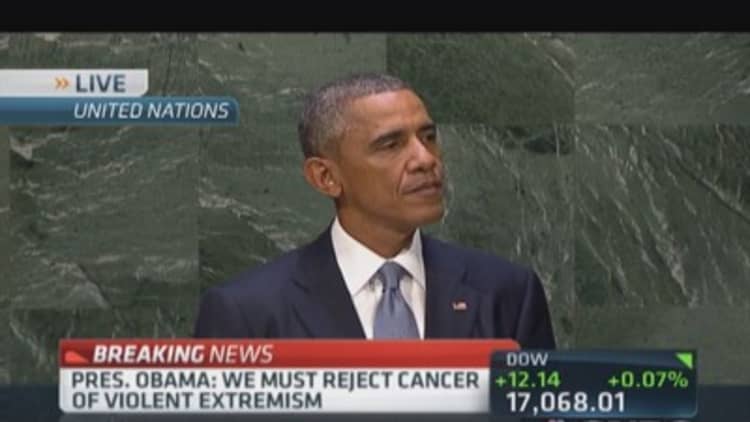
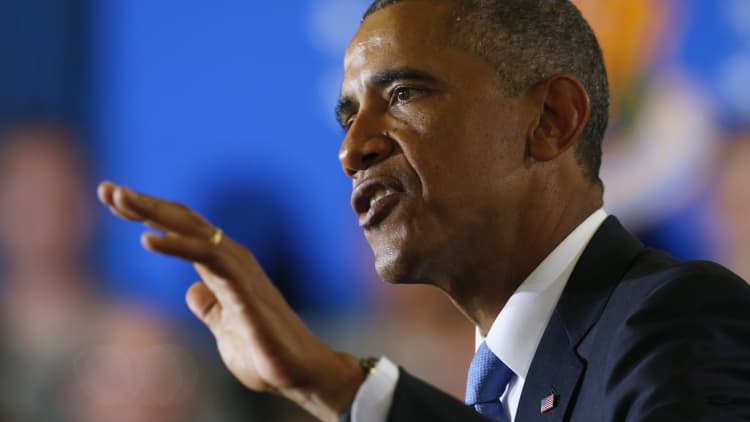
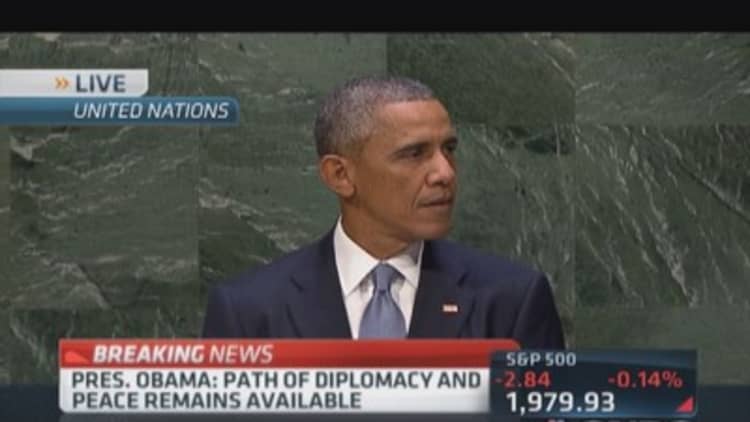
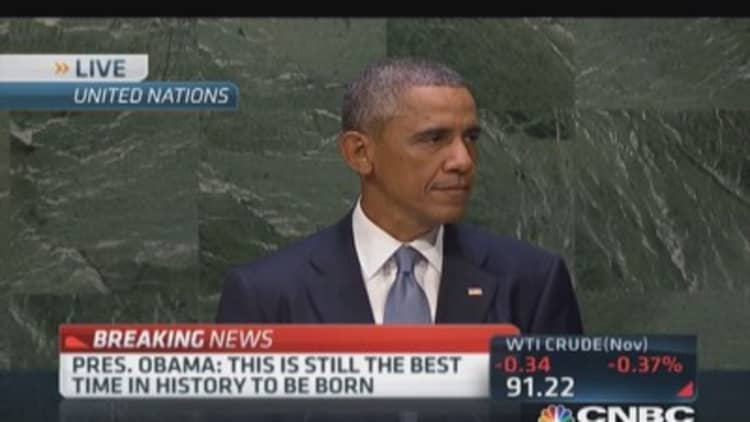
Addressing the U.N. General Assembly, President Barack Obama on Wednesday condemned Russia's "might makes right" actions in Ukraine and warned that the world must coordinate action against threats ranging from Ebola to ISIS.
"There is a pervasive unease in our world—a sense that the very forces that have brought us together have created new dangers, and made it difficult for any single nation to insulate itself from global forces," Obama said.
"As we gather here, an outbreak of Ebola overwhelms public health systems in West Africa and threatens to move rapidly across borders. Russian aggression in Europe recalls the days when large nations trampled small ones in pursuit of territorial ambition. The brutality of terrorists in Syria and Iraq forces us to look into the heart of darkness," he added.
Obama criticized what he described as Moscow's outlook as "a vision of the world in which might makes right—a world in which one nation's borders can be redrawn by another." He called upon other countries to be on "the right side of history" in dealing with Russia's international actions.
Read More US expands Russia sanctions to Sberbank, energy firms
The president said the current ceasefire in Ukraine offers an opening to peace, and the U.S. will lift its sanctions if Russia allows this state of affairs to persist.
Obama addressed criticism that America is hypocritical about fighting aggression abroad in light of police action and riots in Ferguson, Missouri this summer.
"Yes, we have our own racial and ethnic tensions. And like every country, we continually wrestle with how to reconcile the vast changes wrought by globalization and greater diversity with the traditions that we hold dear," he said. "But we welcome the scrutiny of the world."
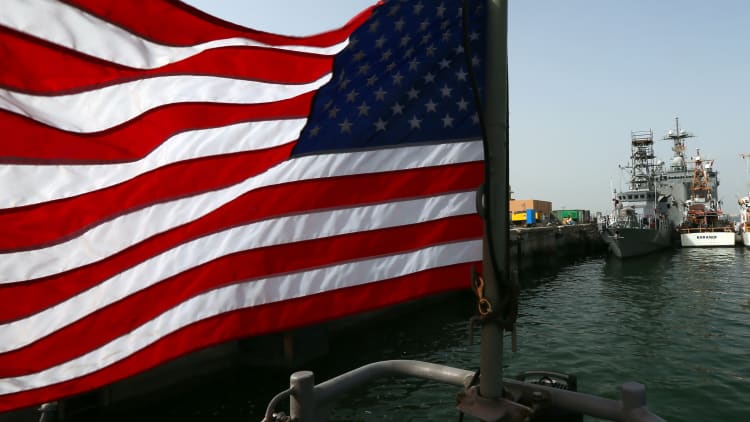
Obama also focused on the fight against militants in the Middle East, emphasizing that "America will not base our entire foreign policy on reacting to terrorism."
United States and its Arab allies began bombing Islamic State targets in Syria on Tuesday. This marked the first time that American-led action against the militant group, which is also known as ISIS or ISIL, has extended beyond Iraq. The airstrikes .
After initial hesitation to take on the group, the president has increasingly called for a group of allies to "degrade and destroy" ISIS.
Read More
In his speech, Obama called for the international community to address the rise of terrorism in four areas. destroy ISIS, explicitly reject the philosophy of violent religious extremism, stem the cycle of sectarian conflict and focus on creating opportunities for the young.
"No God condones this terror. No grievance justifies these actions. There can be no reasoning—no negotiation—with this brand of evil," Obama said. "The only language understood by killers like this is the language of force. So the United States of America will work with a broad coalition to dismantle this network of death."
Looking toward a long fight against extremism in the Middle East, Obama pledged to "neither tolerate terrorist safe-havens, nor act as an occupying power."
Read More ISIS airstrikes: Who are the US's Arab allies?
But America will act to pursue freedom and peace throughout the world, the president insisted, and it will do so without being "distracted or deterred from what must be done."
Later on Wednesday, Obama presided over a Security Council meeting to pass a resolution to fight the threat of ISIS. Despite the unanimous passage, the president underscored that its words must be more than symbolic.
"Resolutions alone will not be enough. Promises on paper cannot keep us safe. Lofty rhetoric and good intentions will not stop a single terrorist attack," Obama said.


